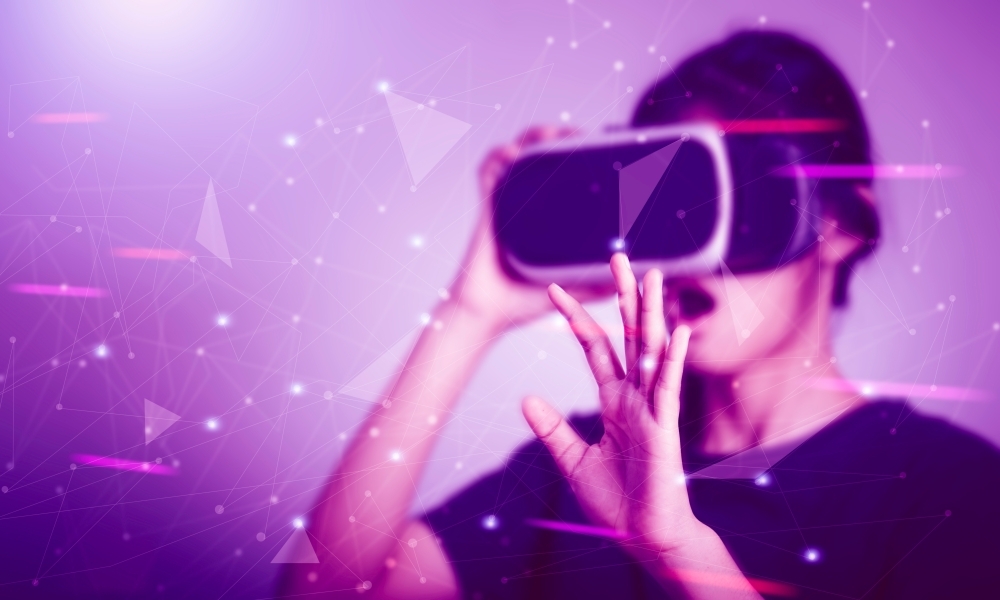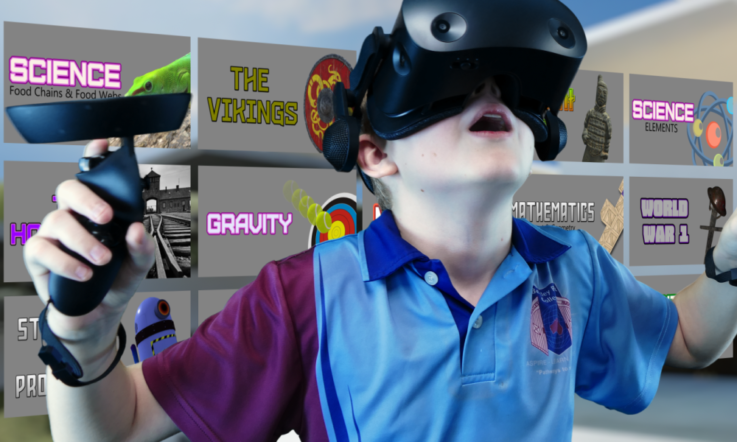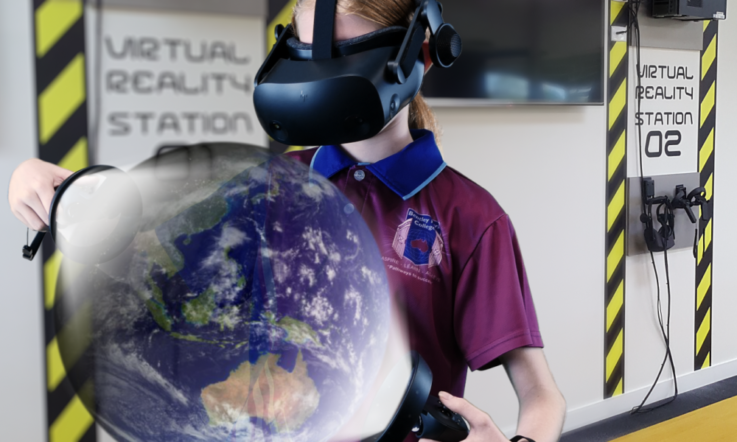‘The metaverse is upon us. Soon it will be as omnipresent as TikTok, Instagram, and Facebook (now Meta).’ So reads the first line of a new Policy Brief exploring the potential of the metaverse to enhance teaching and learning in the future, and why we need to start planning for it now.
Kathy Hirsh-Pasek and colleagues warn we only need to look at what has happened with the boom in ‘educational’ apps. ‘The lesson learned is that the four-year gap between the time when apps became a dominant activity for young children and when the scientific community became engaged was too long. It allowed for a proliferation of low-quality materials that were rushed to market.’
The Policy Brief, released by the Brookings Institution, looks at how research and best practice in education can be successfully transferred to the metaverse to ensure we make the most of new teaching and learning opportunities.
What is the metaverse?
If you’ve read Snow Crash – the 1990s sci-fi novel about Hiro Protagonist’s adventures – you’ll likely remember author Neal Stephenson’s vivid descriptions of a futuristic environment that he called the Metaverse. Although Stephenson first coined the phrase 30 years ago, it came to global prominence last year when Mark Zuckerberg announced the Facebook name change and described the metaverse as ‘the next evolution of social connection’.
‘Metaverse’ made it into the Collins Dictionary Top 10 Words of the Year 2021 (noun: 1. a proposed version of the internet that incorporates three-dimensional virtual environments; 2. a three-dimensional virtual world, esp in an online role-playing game; 3. the universe as portrayed in a given work of fiction) and the Macquarie Dictionary Word of the Year 2021 longlist (noun: A proposed virtual-reality network allowing movement between different sites, platforms, servers, etc.).
The key word in both of those definitions is ‘proposed’. As Meta itself puts it, ‘a lot of pieces need to be built before we get to the metaverse proper’. But the Policy Brief authors argue now is exactly the time when researchers and members of the education community need to start getting involved.
‘Today, as the metaverse infrastructure is still under construction, researchers, educators, policymakers, and digital designers have a chance to lead the way rather than get caught in the undertow,’ they write. In other words, we don’t want to repeat the mistakes of the app boom and be left with a glut of metaverse ‘education’ experiences that fail to deliver for students or teachers.
A social, guided experience
The Policy Brief shares a vision for future schooling in the metaverse, describing a scenario where students in a classroom step into a timeline to journey back to ancient Greece. They are immersed in a marketplace and can look to the hills to see the temples of the gods, before jumping forward to the present day to become a virtual archaeologist, working together to unearth statues and pottery.
‘This deep, transferable learning that will last a lifetime comes to us by virtue of the metaverse delivered in a hybrid, guided play environment that could represent the school of the future,’ the authors say. They stress that this is very much a social interaction, still led by the teacher.
Best principles for learning
Hirsh-Pasek and colleagues explain a combination of the elements of playful learning (active, engaging rather than distracting, meaningful, social, iterative, and joyful) and the 6Cs of collaboration, communication, mastery of content, creative thinking, creative innovation, and confidence provides a checklist. ‘Once the formula is clear, it is easy to fashion the digital and live landscapes to conform to best principles for learning.’
They call for experiences led by teachers, rather than having them as supervisors, and where children can work together rather than as ‘solo agents’ in spaces that are distracting and disconnected. ‘Understanding how to support learning goals through harnessing the power of active, engaging, meaningful, socially interactive, iterative, and joyful contexts will transform flashy and fun digital experiences into truly educational ones with true social interaction at their core,’ they write. There also needs to be a well-articulated learning goal.
The promise and the pitfalls
The authors discuss promising aspects of the metaverse in relation to the best principles for learning. For example, teachers being able to select virtual spaces that help every child feel represented, or allowing students to navigate new spaces that might otherwise be difficult for them ‘e.g., navigating in a supermarket metaverse that helps build number and money knowledge for a child whose family is food insecure’.
They point to the promise of meeting individual learning needs, where students can take on challenges based on their own strengths and areas for improvement, and that draw on what they are learning and what they already know. Again, through all these interactions and experiences the teacher plays a key role as the guide. ‘The metaverse is not a replacement for teachers, instead, it is a tool through which teachers can spark learning and social interaction in new ways.’
However, the authors also insert a ‘caveat emptor’. They warn we will need to find ways to mix the virtual and real to preserve the social relationships that are important to learning.
Other possible pitfalls include making virtual spaces and experiences too distracting (they highlight research on school displays and ‘technoference’) and a technology divide that would prevent some from accessing the metaverse. Ensuring content is accurate, relevant and authentic is another must.
‘Finally, it will be critical to be culturally diverse and culturally inclusive in any games that are made. Indeed, the metaverse could potentially introduce families to perspectives and cultures that are different than their own in ways that promote understanding,’ they add.
References
Hirsh-Pasek, K., Zosh, J.M., Shwe Hadani, H., Golinkoff, R.M., Clark, K., Donohue, C., & Wartella, E. (2022). A whole new world: Education meets the metaverse, February 2022 Policy Brief. Centre for Universal Education at Brookings, Brookings Institution. PDF available to download at https://www.brookings.edu/research/a-whole-new-world-education-meets-the-metaverse/
When you incorporate a new piece of technology into your teaching, what are the learning outcomes you hope to achieve?
The researchers in this Policy Brief discuss the best principles for learning. Looking at the elements of playful learning and 6Cs mentioned above, which ones influence your decision-making when it comes to selecting educational resources such as apps and games?



